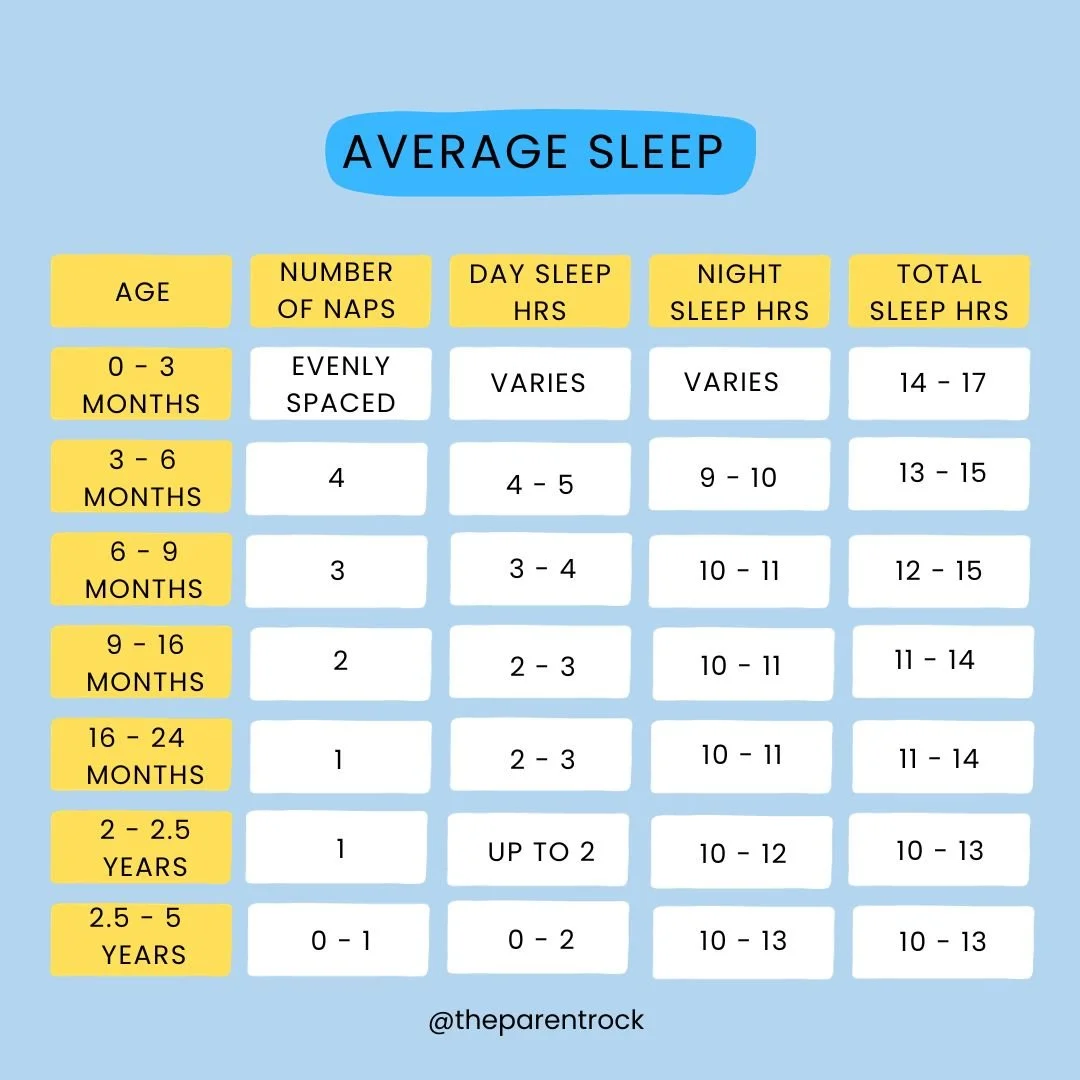Baby Sleep Guide: Understanding Your Infant's Sleep Needs
When pondering the amount of sleep your baby should be getting, it's worth considering the underlying motivation for the question.
Are you asking because your baby seems dysregulated, unsettled, or generally unhappy?
Is it a quest for reassurance?
Or perhaps it's influenced by a perceived notion of what your baby's sleep patterns should be, even if they differ from those expectations.
Understanding the motivation behind the question can provide insights into addressing your concerns or expectations regarding your baby's sleep.
Navigating Baby Sleep Challenges : Common Worries
If you find yourself worrying that your baby may be developing some sleep problem, you are not alone. This is especially true when your little one’s sleep doesn’t align with the expectations you had in mind (Crnic, 2005; Crnic, 1990).
So where exactly do these expectations come from? Do their origins come from what is developmentally typical, suitable, and anticipated for a baby of their age? Or do sleep myths, misguided perceptions, and unrealistic expectations older generations had about their children in the past influence your judgement?
And to make matters worse, the challenge can be intensified further by insufficient preparation for parenthood, not having effective coping strategies and limited support (Herman et al, 2012).
Disentangling Sleep Myths : A Nuanced Perspective
If you are getting overly preoccupied with your baby's sleep patterns, it's essential to take a moment and reevaluate what is considered normal and expected.
Navigating this can be tricky since common misconceptions and sleep myths often intertwine with the developmental norms for babies. Influences from the media, your social circle, and non-evidence-based advice from professionals can further contribute to these expectations.
Professional Insights and Baby Sleep Realities
You may take comfort from the fact that even some professionals seem to struggle with grasping the intricacies of typical infant behaviour (Brown, 2016).
We naturally want to believe that a professional involved in our child’s health must be the fountain of all knowledge. However, the reality can be quite the opposite. Their views and opinions can be outdated, and out of step with modern parenting, and this can have the effect of parents thinking that their little one must be a 'bad sleeper.'
For a more nuanced perspective, always bear in mind that some babies will diverge from the established norms and norms are just that - norms! And your baby may be one of those!
Developmental Sleep Shifts : From Infancy to Childhood
Naturally, it's evident that babies, older children, and adults all experience distinct types of sleep to cater to their varying needs. In broad terms, as a child grows older, the frequency of nighttime awakenings tends to decrease, transitioning toward more extended periods of uninterrupted sleep at night, eventually phasing out daytime naps.
Tailoring Sleep Expectations : Individualising for Your Baby
There exists a certain degree of variability when it comes to sleep requirements at different stages of life. It's important to approach generic sleep/wake charts with a healthy dose of scepticism, considering the inherent variability in individual sleep needs across different ages.
Analysing Sleep Patterns : A Practical Approach
If you're still concerned about your baby's sleep, start by totaling the hours they sleep over a 24-hour period. Include all forms of sleep - daytime naps, contact naps, carrier naps, even the time they spend sleeping while feeding. Once you've gathered this data, compare the duration of daytime sleep to nighttime sleep. Refer to the chart above to see if your baby's sleep aligns with the typical patterns for their age.
If there seems to be a sleep deficit, it can be beneficial to discern whether it's more prominent during the day or at night.
A word of caution before diving into the calculations: there will always be outliers, with some babies sleeping more or less than their peers of a similar age.
Sleep Diversity : Recognizing Your Baby's Unique Needs
Similar to adults, babies can exhibit varying sleep needs. Just as some adults may require more or less sleep, babies too can fall into the spectrum of greater or lesser sleep needs. This highlights the individuality in sleep patterns and how they can be influenced by genetic factors.
I’m a high sleep need person whereas my husband has a low sleep need. Thankfully my children inherited my sleep gene!
Addressing Sleep Deficits : Considering Mood and Cues
If you find that your baby is getting less sleep than the sleep chart suggests, it's essential to consider a few factors before jumping into solutions.
Firstly, observe your baby's general mood. If they are consistently happy and content, it's highly unlikely that they are sleep-deprived. This consideration naturally leads to the question: How does your baby express tiredness? What are the signs they exhibit?
Take the time to understand your baby's unique cues for tiredness. Sometimes, what might seem like tiredness could be boredom, frustration, or discomfort. Each baby is different, so being genuinely curious about your baby's individual signals is crucial.
Embracing Individuality : Happy and Unique Babies!
Remember, if your baby is not displaying signs of tiredness and is generally happy, there is no real need to address their sleep patterns. Every baby is unique, and the key is to align your observations with your baby's specific characteristics and needs.








